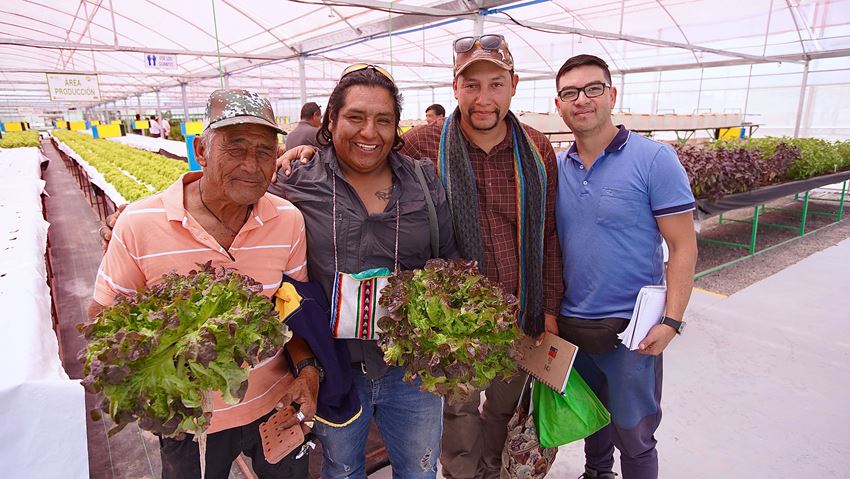News
CONADI Values Hydroponic Greenhouse’s Contribution to Agricultural Development in Pozo Almonte

The deputy director of the National Indigenous Development Corporation (CONADI) and several local farmers visited the Pozo Almonte Agricultural Research and Development Center to tour the facilities and learn more about good practices for hydroponic irrigation systems to replicate the model in desert areas or towns affected by droughts.
The Pozo Almonte Agricultural Research and Development Center has established itself as a point of interest for students and regional authorities, who often visit the 1,000 m2 hydroponic greenhouse to learn more about the greenhouse’s good practices. Here, local farmers are already harvesting diverse crops with a hydroponic irrigation system that lets them optimize water use.
One of the most recent visits was from the national deputy director of the National Indigenous Development Corporation (Conadi), Eleodoro Moscoso, who along with farmers from different towns throughout the Tarapacá Region, toured the facilities to learn how this project grew out of a partnership between SQM’s Tamarugal Tierra Fértil Program and the municipality of Pozo Almonte. These two entities joined forces to strengthen farming and livestock raising in the area, while augmenting household incomes for the entrepreneurs that are part of this pioneering initiative in the region.
Eleodoro Moscoso, national deputy director of Conadi, commented: “I think the initiative is very important since they are applying new technologies that can be used without losing the cultural origin of the project participants. That is precisely one of the core values at Conadi: adapting to new technologies without losing originality.” The indigenous representative valued the achievements made and also called participants to continue working to support the quality of life of communities through this type of initiatives that demonstrates that it is possible to farm in the desert.
Ruth Godoy, one of the farmers that visited the production center and the president of the Macaya community, remarked: “This is the first time I have seen a greenhouse like this. It is very interesting to see these desert farming techniques because my people were left without water after the “altiplanic winter”, so this helps us see new ways to work with little water. I came particularly to see what this was all about in order to take these ideas to my people and help the farmers.”
Víctor Espinoza, a farmer from La Tirana, commented: “It is very good to be able to see firsthand how to do hydroponics and how it has worked for them. It is very important that SQM has paid attention to this desert area and taught us how to take advantage of our resources, how to farm with little water and also this is a system that will help us have good-quality products.”
In this spirit, Atilio Narvaez, deputy manager for Social Programs at SQM, remarked: “At this center, we have an open-door policy for the entire community so they can join this initiative. With our advisors and professionals, we have the capacity to give farmers from Pozo Almonte new tools so they can learn about hydroponics and new ways of growing crops that we are implementing. This is how we are working together to strengthen local farming.”
The recently inaugurated Pozo Almonte Agricultural Research and Development Center is promoted by SQM’s Tamarugal Tierra Fértil Program and the municipality of Pozo Almonte. This initiative consists of two production units; a 171 m2 cheese-making facility where local producers manufacture gourmet goat cheese and a 1,000 m2 hydroponic greenhouse where they grow hydroponic produce such as lettuce, bell peppers, basil, chard, melons, hot peppers and other crops.
